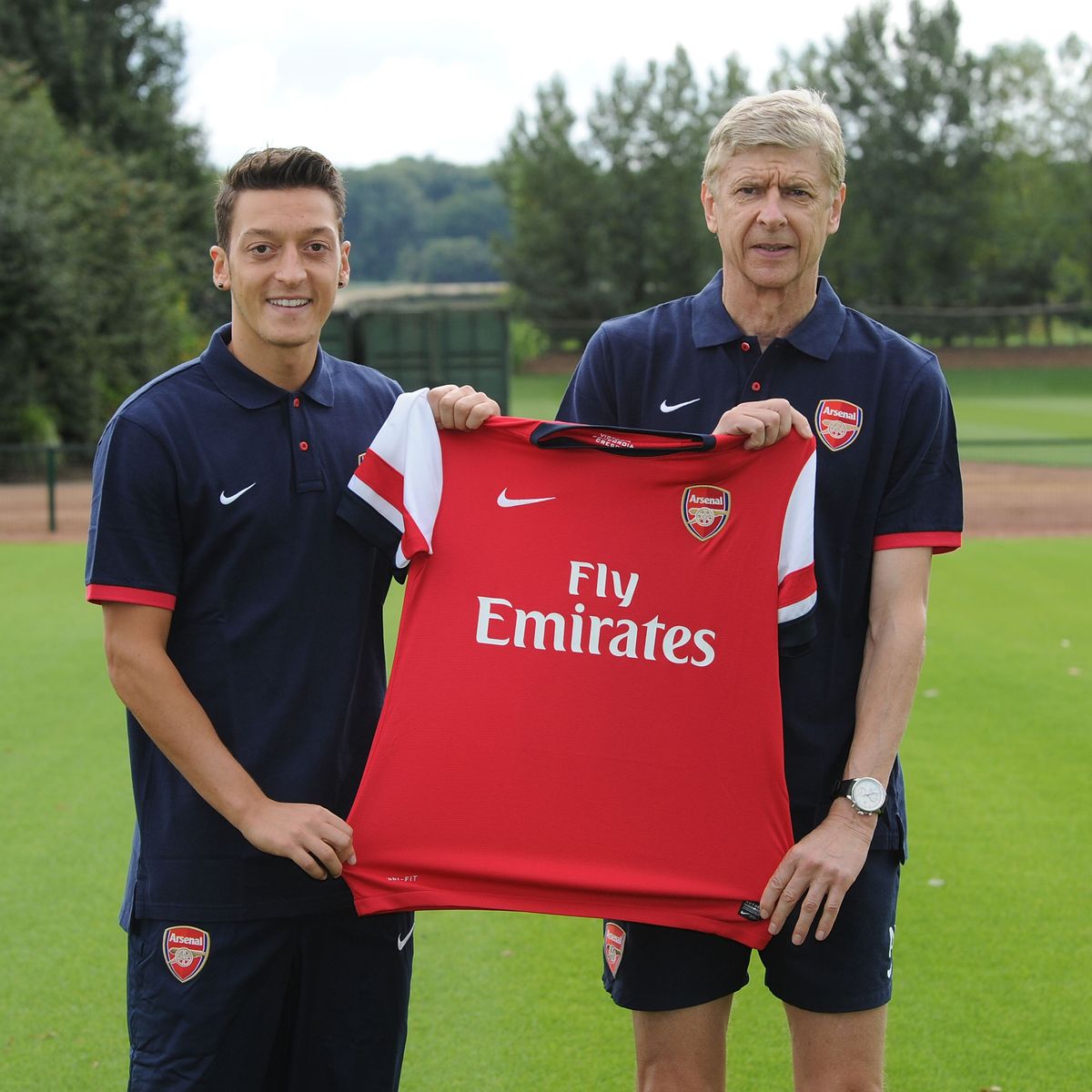The ubiquity of social media has changed the way we operate as a society. One less major (depending on who you ask) symptom of this is football transfer reporting. Gone are the days of a record transfer catching all of us by surprise. But how did we get here?
I remember exactly where I was when Mesut Özil signed for Arsenal — on the way back from my 10th grade math tuition class in my mother’s red Estilo. I remember slapping the roof of the car, screaming out ecstatically. I had to refresh the BBC Sport page a couple of times to make sure I wasn’t hallucinating. Had Özil really signed for my club?
Going into deadline day in 2013, the headlines had been dominated by Gareth Bale’s will-he-won’t-he-saga with Real Madrid that had gone on all summer. The Özil transfer was a massive curveball, and a move that had sprung out of seemingly nowhere.
While his Arsenal legacy didn’t pan out in the way it had been expected to, there’s an argument to be made that Özil has been the biggest signing of the Emirates era so far. While Arsenal have broken their transfer record thrice since then, the Özil signing will always be put on a pedestal. As much for its magnitude as its unexpectedness.

Arsenal did not sign players of that caliber in 2013. Moves for proven superstars were eschewed in favor of young talent from Ligue 1. Prior to deadline day, the only permanent signings Arsene Wenger had made were Matthieu Flamini on a free transfer from AC Milan and a 20-year-old Yaya Sanogo from Auxerre. The financials flummoxed too. The $42 million outlay was almost twice the amount spent on the club’s previous record signing, Andrey Arshavin.
The transfer was the last of its kind in that today it is near impossible for a player of Özil’s status to make a move that catches the footballing ecosystem so off guard.
There is no secrecy around transfers today. Right from when the first roadblocks appear in contract negotiations up to the moment a player signs on the dotted line, every detail of a transfer takes place in the public eye. The modern transfer window is conducted on Twitter.
The offshoot of this transparency in transfers is that discerning the truth has become a challenge. Rumors that swirl around for long enough on our timelines are taken to be true. The common operative word for all the club in-the-know (ITK) accounts is “linked.” It drives fan engagement yet is dubious enough to protect from liability.
Here is how the chain effect of the transfer market plays out: One rumor sprouts a couple more, which leads to a compilation video and photoshopped images of the player in the kit of his rumored destination. The problem arises when expectation builds up and the club finds itself under pressure from its fanbase to sign a player that in some cases is not even on their radar.
In the transfer window a couple of years ago, there were reports about how Manchester United were frustrated by the social media toxicity amongst the fanbase due to the club having “missed out” on the signings of Sergio Reguillon and Gareth Bale. The clubs were bemused by the negativity amongst fans given they never went beyond preliminary negotiations with the players.
Transfer news has become subjective — it all depends on who you believe. Journalists and sources garner cult followings, with credibility becoming currency. Fabrizio Romano and David Ornstein, journalists for The Guardian and The Athletic respectively, have become synonymous with the transfer window and hold the most elusive card in the game — the final word. When they break a piece of transfer news, its veracity is never questioned.
View this post on Instagram
One of the ironic consequences of transfer dealing being made so open is that it has increased fans’ impatience. Take for example Gabriel Jesus’ transfer to Arsenal this summer. Romano began reporting Arsenal’s interest in the player early in May and regularly provided updates on the transfer through the negotiation before eventually confirming it towards the end of June. One of the consequences of such minutiae reporting is increased impatience amongst fans. Up until the Jesus transfer was given the trademark “Here We Go” treatment, Romano found himself hounded by desperate Arsenal fans seeking information on the negotiations. In that month-and-half period, Romano could have tweeted about discovering a portal to the Upside Down world of Stranger Things in his backyard, and thousands of Arsenal fans would have still replied with, “Update on Jesus?”
While the Arsenal fanbase is particularly vociferous online, journalists like Romano find their mentions flooded with replies with tens of thousands of fans from clubs all across the world. This is especially true when the negotiations are protracted.
As supporters, what we sometimes fail to understand is that a transfer is a high stakes legal proceeding involving clubs, players, agents, and sponsors. Its complexity is furthered by the unpredictability of human nature and the innate emotionality of players.
“That is the beauty of the transfer market,” Romano said in an interview with Sportsbible. “If you want something else, I always say play Career Mode on FIFA or Football Manager where you have two minutes and you sign the player no problem. In real life transfer news you have to understand that something can happen. It’s part of the game and you have to accept it.”
Transfer windows and their reporting have increasingly become an overwhelming and suffocating phenomenon. The seemingly endless wait between the agreement of a transfer and its official completion is fatigue inducing. By the time the player eventually signs, the overriding feeling is relief rather than joy. Every transfer now feels like a saga.
View this post on Instagram
Clubs too, have felt the impact of hyper reporting in the transfer market. On a recent Arseblog podcast episode, former Arsenal website digital manager Rob Kelly mentioned that the confirmation of player transfers from journalists can at times come weeks before clubs are able to officially unveil them, meaning that content teams have lost an important engagement generator for their platforms. Kelly also spoke of how clubs have now increased the emphasis on their announcement videos to compensate for the delay and to match the hype that’s grown amongst fans.
Sometimes I do miss the pre-Football Twitter transfer windows and their ability to surprise. I do miss the sheer randomness of opening the BBC Sport app one afternoon to find that your club has signed Mesut Özil.








